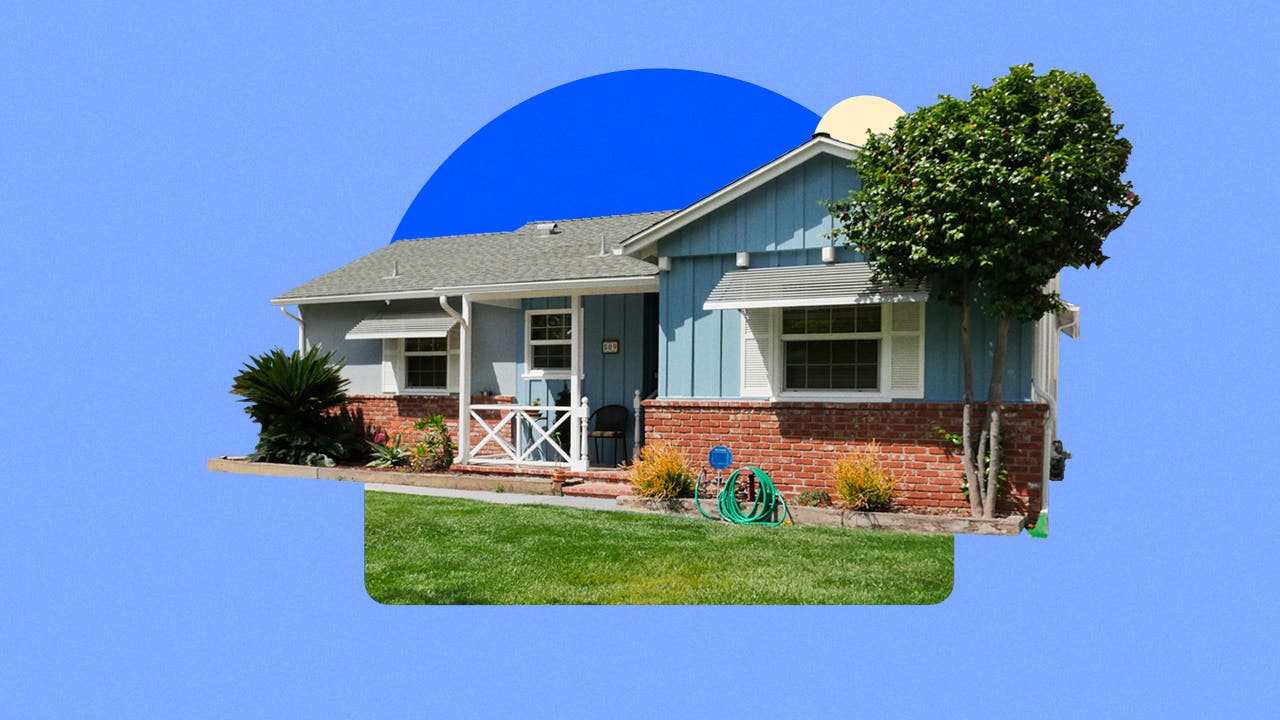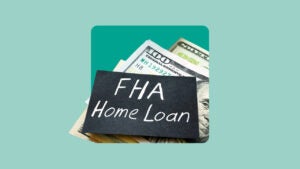What is an FHA cash-out refinance?




Key takeaways
- An FHA cash-out refinance lets you borrow against the equity in your home by swapping out your current home loan with a new, larger one.
- This type of refinance is available to qualified borrowers with any kind of existing mortgage — not just an FHA loan.
- If an FHA cash-out refinance isn’t ideal for your financial situation, a home equity loan, HELOC or personal loan could be a viable alternative.
What is an FHA cash-out refinance?
An FHA cash-out refinance involves paying off your existing mortgage with a new, bigger mortgage. This mortgage is insured by the Federal Housing Administration (FHA). You’ll receive the amount above your existing mortgage balance as a lump sum of cash.
The amount you can “cash out” is based on your equity level and your current mortgage balance. Ideally, the new mortgage would also come with a lower interest rate.
Once you have the cash, you can use it however you like, but many borrowers choose to make home improvements, fund education or pay off credit card debt.
How an FHA cash-out refinance works
You can obtain an FHA cash-out refinance no matter what type of mortgage you have. For example, if you have a conventional loan, you may still qualify.
You’ll start by getting an appraisal of your home. This is an assessment of your home’s value — and it determines how much you can borrow.
With an FHA cash-out refinance, you may be able to borrow up to 85 percent of the appraised value if you’re using the proceeds for home improvements. If not, you’re limited to 75 percent.
Let’s say you currently owe $200,000 on your existing mortgage, and an appraisal values your home at $400,000.
In this scenario, you may be able to borrow up to $340,000 — which is 85 percent of your property’s value. If you’re not using the funds for documented home improvements, you’re limited to 75 percent, or $300,000.
However, you don’t have to borrow the full $340,000. Let’s say you just need $100,000 to finish a major home renovation.
After the appraisal, you’ll submit a new mortgage application — similar to the one you filled out when you first bought your home — for a $300,000 mortgage instead.
Once the new mortgage is approved, you’ll use the first $200,000 to pay off your old mortgage, and you’ll begin making monthly payments on your new $300,000 loan.
How much does an FHA cash-out refinance cost?
An FHA cash-out refinance can cost thousands of dollars, as you’ll need to pay closing costs on the new loan. Closing costs typically range between 2 percent and 6 percent of the loan amount. If you’re taking out $300,000, this could be as little as $6,000 or as much as $18,000.
Your closing costs will also include an upfront FHA mortgage insurance premium (MIP) of 1.75 percent of the loan amount. In the above example, that’s $5,250.
FHA cash-out refinance rates
FHA cash-out refinance rates are typically a bit higher than standard FHA refinance rates. This reflects the increased risk of a lender lending you a larger mortgage.
As you compare rates, pay attention to the annual percentage rate, or APR, which accounts for some of the fees you’ll pay, in addition to the interest. For example, you might see an interest rate of 7.76 percent for a 30-year FHA refinance. The APR, though, might be higher due to the inclusion of mortgage insurance, discount points and other costs.
FHA cash-out refinance requirements
The FHA has minimum requirements for FHA loans, including refinances, but FHA lenders can also set their own standards.
- Credit score: While FHA loans often make headlines for allowing credit scores as low as 500, the reality is you’ll need a higher credit score to obtain the best deal on an FHA cash-out refinance. Some lenders will approve a credit score as low as 620, but the lowest rates will go to borrowers with credit scores of 740 or higher. If you’re hoping to do a cash-out refinance, work to improve your credit well before applying.
- Debt-to-income (DTI) ratio: In most cases, your debt-to-income ratio, or DTI ratio, can’t exceed 43 percent. If you have other loans or debt, it’s wise to try to pay them down before you apply for a refinance.
- Loan-to-value (LTV) ratio: You’ll need at least 15 percent equity in your property after the cash-out refinance.
- Loan limits: There’s a cap on how much you can borrow, regardless of how much your property is now worth. In most places, the limit for 2025 is $524,225 for a single-family home, but some higher-priced areas have higher limits, up to $1,209,750.
- Mortgage insurance: All FHA loans, including cash-out refinances, require mortgage insurance. You’ll pay an upfront premium of 1.75 percent of the loan amount, then an annual premium that ranges from 0.45 percent to 0.80 percent of the loan amount, depending on the length of your new mortgage, your LTV and your loan amount. While most FHA loans require mortgage insurance for the entire loan term, you can remove it after 11 years if you make a down payment of at least 10 percent.
- Occupancy and property requirements: The home must be your primary residence, and you’ll need to have lived in the property for at least the last 12 months.
- Payment standing: You’ll need to be in good standing with your current mortgage, which means you’ve made at least the past 12 monthly payments on time.
Pros and cons of an FHA cash-out refinance
The benefits of FHA cash-out refinance loans make them attractive, no matter the type of your original loan. Still, it’s important to consider the drawbacks before formally applying.
Pros of an FHA cash-out refinance
- Flexible eligibility guidelines. You don’t need perfect credit to qualify for a loan. That said, a lower score means you’ll likely pay a higher rate.
- FHA loan not required. These mortgage products are open to borrowers with any kind of existing mortgage — not just FHA loans.
- Assumable by other buyers. When you’re ready to move, another buyer who meets FHA credit qualifying guidelines could take over the loan. This might make your home an easier sell, especially if rates are higher when you sell than when you first took out the loan.
Cons of an FHA cash-out refinance
- Increased debt load. A higher mortgage balance means you’ll likely have bigger monthly mortgage payments.
- Borrowing costs. You’ll need to pay for other costs like MIP, an appraisal fee and title services when taking out an FHA cash-out refinance.
- Limited to primary residences. FHA cash-out refinances are only allowed on the home you live in — not on a rental or second home.
FHA cash-out refinance vs. other loan types
With their flexible eligibility guidelines, FHA cash-out refinances can be good choices for some homeowners, but they’re certainly not the only option. Depending on your needs and financial picture, it may be worth considering a conventional cash-out refinance or an FHA streamline refinance.
FHA cash-out vs. conventional cash-out refinance
Both an FHA cash-out refinance and a conventional cash-out refinance have the same endpoint: getting more money. However, if you have the credit needed for the conventional route, you could avoid paying MIP.
Conventional mortgage loans with an 80 percent LTV ratio won’t require private mortgage insurance. This doesn’t necessarily make a conventional loan cheaper, though. Consider asking your accountant or financial advisor for help comparing the costs.
FHA cash-out vs. FHA streamline refinance
If you don’t need the additional cash, an FHA streamline refinance can be an easier route to save money on your monthly payments. As the name implies, the process is streamlined — less paperwork and less underwriting work. There are non-credit qualifying options, too, meaning you could get approved without any research on your credit score. However, FHA streamline refinances are only available to existing FHA borrowers.
| FHA cash-out refinance | FHA streamline refinance | |
|---|---|---|
| Credit score required | Generally 620 (some lenders might accept lower) | No credit documentation needed |
| Ability to take out more money | Yes | No |
| Appraisal required | Yes | No |
| Available to borrowers with | Any kind of existing mortgage (conventional, FHA, VA or USDA) | Must have an existing FHA mortgage |
FAQ
Why we ask for feedback Your feedback helps us improve our content and services. It takes less than a minute to complete.
Your responses are anonymous and will only be used for improving our website.




